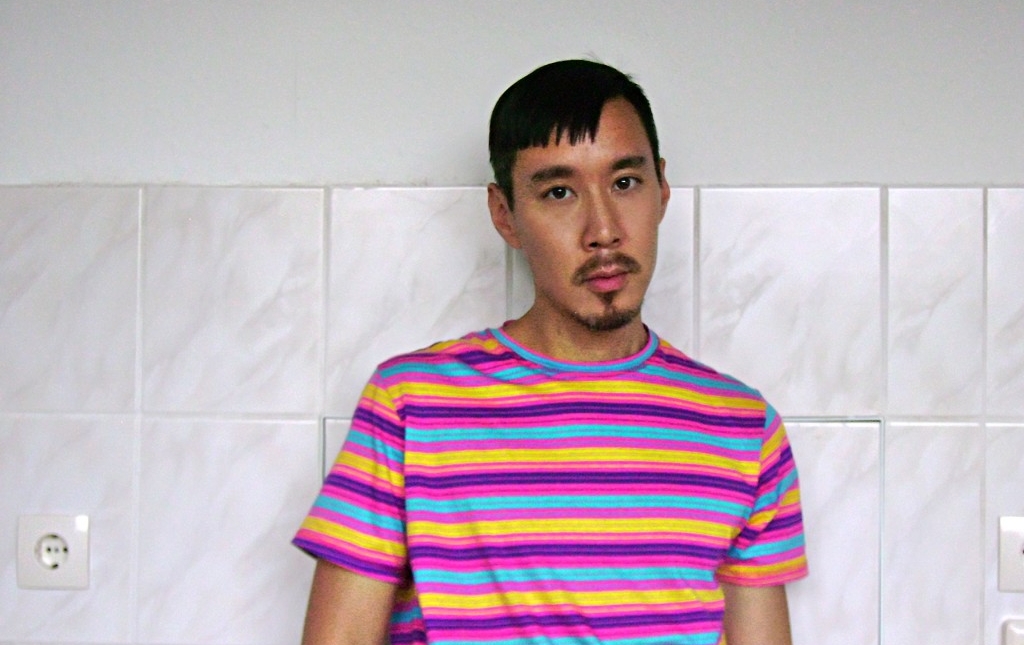“There can be great seriousness in the pursuit of pleasure,” he says. “Whether aural, physical or spiritual. Specifically disco though – or dance music in general – it’s true and false on both sides. On the one hand, I love orchestral disco – Salsoul, MFSB, Cerrone, Walter Murphy – but a lot depends on the nuance in the arrangement and production. We all know that there are over-arranged disco versions of classical music, which are the worst form of kitsch.”
Clearly there’s more to disco than Saturday Night Fever and ABBA. But Wang’s longstanding involvement with the genre has less to do with strict loyalty than the quality of music that falls under the disco banner.
“To put it bluntly,” he says. “Music made on laptops or samplers by DJs who don’t know a major chord from a minor, who couldn’t sing or invent a five-note melody to save their lives, to me that isn’t music anyway. But I don’t have a strict allegiance to only disco. There are disco tunes we’ve all loved for over three decades now, and also disco music which I can’t stand. My only allegiance is to music with harmonic and rhythmic beauty and complexity, and disco is definitely part of that, but so are large portions of jazz, bossa nova, and so on.”
Indeed, Wang has never been content with just one formula. He started out in the early ‘90s, issuing a bunch of sample-laden productions on his own label, Balihu. As the 21st century drew near, he adopted a more authentic, sample-free approach, and he’s since dabbled with boogie-inspired soul. Though, during the last decade, Wang’s releases have been all too rare.
“New tracks are coming, although I’ve been saying that since about 2005,” he says. “I just bought myself a new Mac computer three months ago and installed Ableton Live. I am trying to learn that software, or maybe I will switch to Logic Pro. There are some remixes coming soon, which I did with my French-German studio partner Jules Etienne, who is also a great guitarist and singer. But until the tracks are finished, I shouldn’t make any more empty promises.”
Akin to his ongoing musical exploration, Wang’s spent his life moving around the globe. After growing up in Taiwan and California, he set himself up in New York. For the last ten years, he’s found solace in Berlin.
“They’ve all been good to me,” he says. “But as an adult, you can’t keep drifting around forever. My home, my steady boyfriend, the things and even the foods and people I love are mostly all here in Berlin now. I miss the broad orderly streets and the tolerant, open atmosphere whenever I travel to anywhere else. But as I grow older, I can still imagine moving back to Asia or California. I once thought NYC was amazing, but the more I travelled, the more it seemed a desperate cesspool of sorts. The world keeps changing, and we change with it too.”
While his releases have slowed down of late, Wang’s global DJing has never ceased. He’s pleased to report that being in the club environment remains a genuine thrill. Though, there are some concessions.
“I still get a rush, and that happens almost only in Berlin now,” he says. “I also am fascinated to what extent that is a purely subjective feeling, based on familiarity, expectation, even physical desire. I have no doubt that other people feel the same at a tacky rave in Ibiza or at a gay circuit party in San Francisco, and that is part of the fascination of nightlife itself.
“I am amazed that I still enjoy good music more than I perhaps ever did in my life, or that it feels as fresh as when I was 12 or 13,” he adds. “I am going to be 46 in June, which is not far from 50. My life may well be more than half over, but when I dance, I still feel like a teenager. Even with my boyfriend at home after we listen to old Bobby Orlando productions. And as much as possible, I want to make others feel the same with my DJ sets – the feeling that you might just live forever.”
The endurance of Wang’s hedonistic streak is matched by his hunger for knowledge. “I was very, very naive when I started out,” he says. “I had some sense of taste, but without any real musical education or technical know-how. I had no appreciation for bossa nova, samba, African percussion; I did not know a Wurlitzer piano from a Fender Rhodes, anything about harmony, acoustics, rubato or legato, arpeggio or obligato.
“I often wish that my parents had given me the chance at some schooling,” he adds. “But I hope I can still make up for that lost time in the coming years.”
BY AUGUSTUS WELBY

